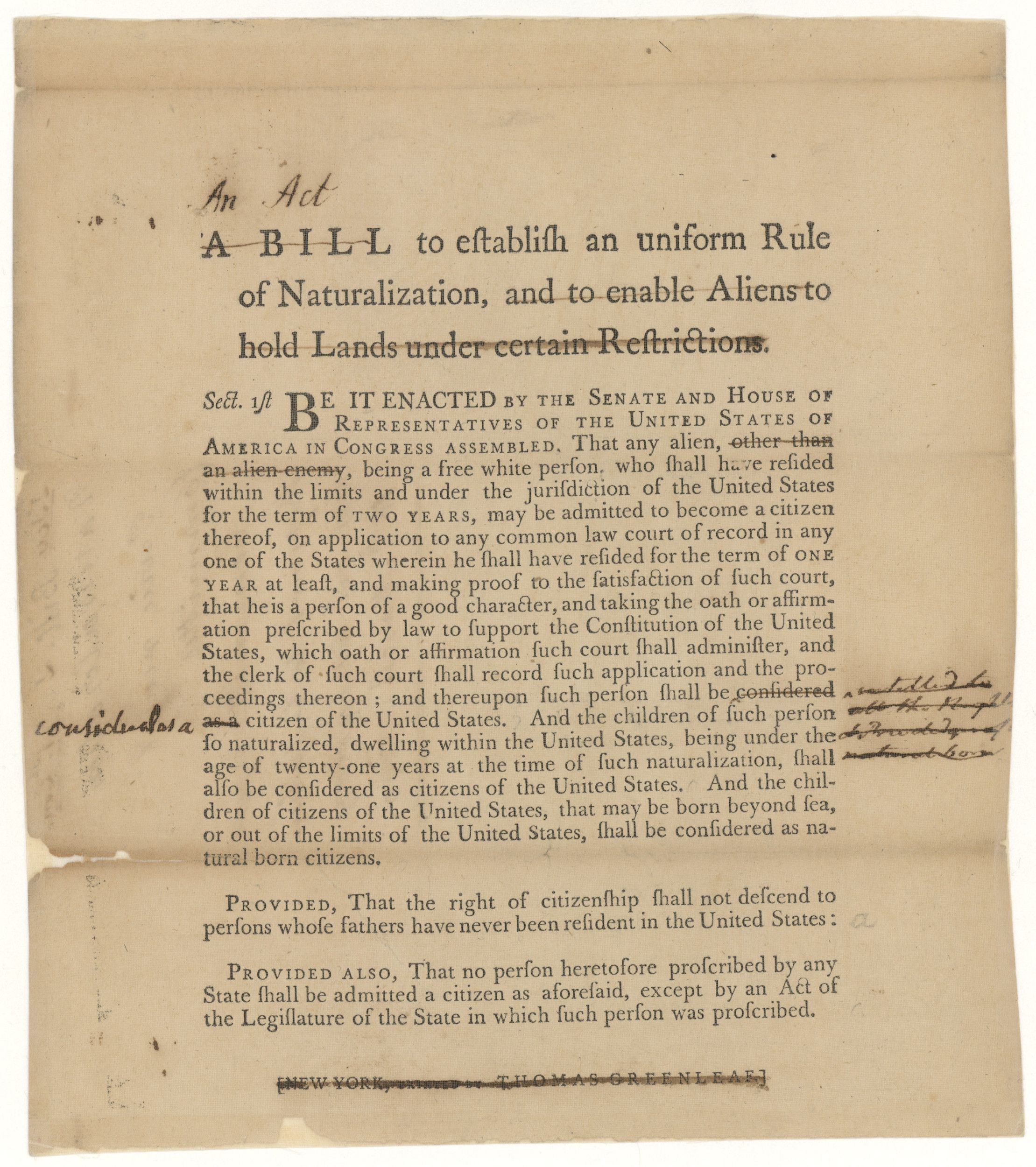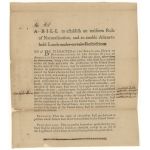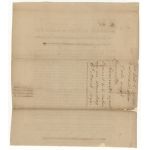Naturalization Act of 1790
3/4/1790
Add to Favorites:
Add all page(s) of this document to activity:

Add only page 1 to activity:
Add only page 2 to activity:
H.R. 40, a Bill to Establish an Uniform Rule of Naturalization and Enable Aliens to Hold Lands under Certain Conditions, was introduced in the Senate on March 4, 1790. The bill provided that “any Alien being a free white person” who had resided within the United States for two years could file a petition for naturalization in any common law court located in a state in which they had resided for at least one year. After “making proof to the satisfaction of such Court that he is a person of good character, and taking the oath or affirmation prescribed by law to support the Constitution of the United States,” such person would become a citizen. It also provided citizenship for children of U.S. citizens who were born abroad.
The Naturalization Act of 1790 was signed into law on March 26, 1790.
The Naturalization Act of 1790 was signed into law on March 26, 1790.
This primary source comes from the Records of the U.S. Senate.
National Archives Identifier: 7452136
Full Citation: A Bill to Establish an Uniform Rule of Naturalization, and Enable Aliens to Hold Lands under Certain Conditions; 3/4/1790; (SEN1A-C1); Bills and Resolutions Originating in the House and Considered in the Senate, 1789 - 2002; Records of the U.S. Senate, Record Group 46; National Archives Building,Washington, DC. [Online Version, https://docsteach.org/documents/document/naturalization-act-of-1790, April 25, 2024]Activities that use this document
- How Have Americans Responded to Immigration?
Created by the National Archives Education Team
Rights: Public Domain, Free of Known Copyright Restrictions. Learn more on our privacy and legal page.





